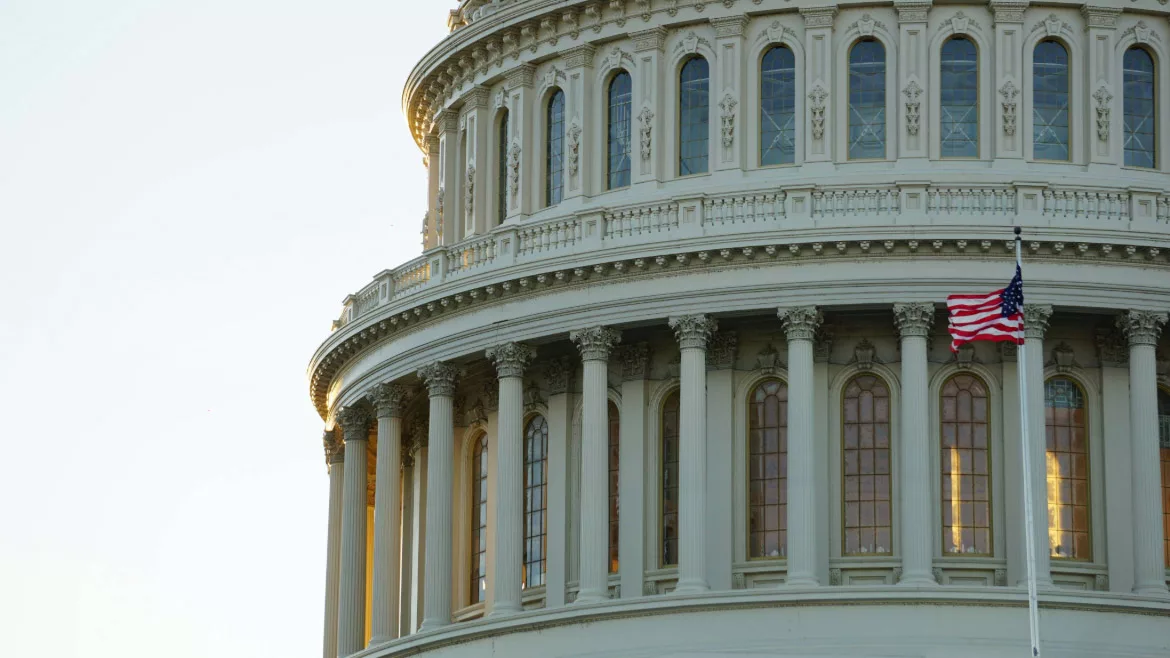House passes funding bill to reduce EPA, FWS funding
The bill slashes the U.S. Fish and Wildlife Service's budget by 8.4% and EPA's budget by 20%

Photo by Ian Hutchinson on Unsplash
The U.S. House of Representatives has passed a funding bill that environmentalists say would cause "irreparable harm" to the nation's natural heritage. The legislation, which passed with a vote of 210 to 205, includes massive cuts to the U.S. Department of the Interior and the U.S. Environmental Protection Agency, as well as an unprecedented number of "poison pill" riders that would undermine the Endangered Species Act and other safeguards for vulnerable wildlife.
The bill slashes the U.S. Fish and Wildlife Service's budget by 8.4% compared to last year's funding levels, while the EPA's budget would be cut by 20%, bringing the agency back to funding levels not seen since 1998. Environmentalists say the cuts would have devastating consequences for efforts to protect endangered species and combat climate change.
"From wolves, whales and wolverines to wildlife refuges across the country, this bill would cause irreparable harm to our natural heritage," said Stephanie Kurose, deputy director of government affairs at the Center for Biological Diversity. "Extremist lawmakers are hellbent on bulldozing decades of progress and steering us toward ecological disaster, damn the consequences."
One of the most controversial provisions of the bill is a rider that would remove federal protections for all gray wolves in the lower 48 states, except for a small population of Mexican gray wolves in Arizona and New Mexico. Another rider would remove protections for grizzly bears in the Greater Yellowstone Ecosystem and block the reintroduction of grizzlies in the North Cascades and Bitterroot ecosystems.
The bill also contains a new rider that would block protections for wolverines, which have waited nearly 30 years for protection. This rare wilderness species is threatened with massive habitat loss due to climate change, and no more than 300 wolverines remain in the lower 48 states.
Supporters of the bill, on the other hand, say it would help to "unleash American production" and lower energy costs by promoting domestic oil and gas production and blocking regulations they say would harm the economy. They also point out that the bill fully funds the Payments in Lieu of Taxes (PILT) program, which provides funding to counties with large amounts of federal land, and includes a permanent fix for wildland firefighter pay.
"The FY25 Interior, Environment, and Related Agencies Appropriations Act will help reduce energy costs, protect American jobs, and ensure that we can continue to access our public lands to recreate, hunt, and develop our natural resources," said Subcommittee Chairman Mike Simpson (R-ID). "I am proud that this fiscally responsible bill reins in unnecessary spending and rejects the Biden Administration's misguided regulatory agenda."
But Democrats and environmentalists say the bill is a giveaway to polluters and would have disastrous consequences for public health and the environment. They point out that the bill would block the EPA from regulating methane emissions from the oil and gas industry, limit the agency's ability to address climate change, and undermine safeguards for endangered species.
"Rather than making sound investments to protect our air and water, preserve our National Parks, and ensure the environment we all share and live in remains clean and protected, the majority's bill benefits the most egregious polluters and climate science deniers, jeopardizes public health and safety, hinders our responses to the climate crisis, and endangers rural and low-income communities," said Congresswoman Rosa DeLauro (D-CT), ranking member of the House Appropriations Committee.
The bill now heads to the Senate, where it is likely to face stiff opposition from Democrats. Environmentalists are urging lawmakers to reject the bill and instead pass legislation that would protect the environment, public lands, and the health and safety of the American people.
"This bill is riddled with so many outrageous policy attacks on our environment that it is impractical to list them individually," 69 environmental organizations wrote in a combined letter, led by the League of Conservation Voters and Trust for Public Land. "We urge you to reject this proposal, which is equal parts damaging and unrealistic."



.webp?height=200&t=1663877946&width=200)
